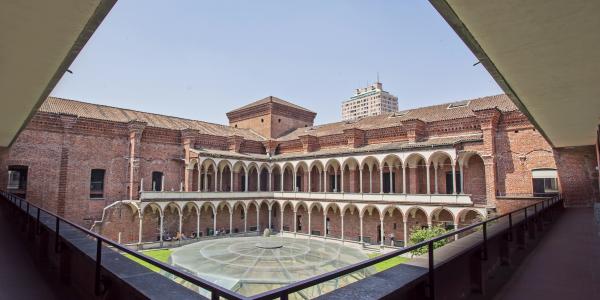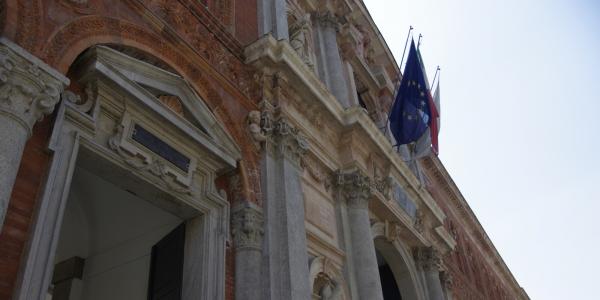Mobility and 4EU+ programmes of study
In 2019, the 4EU+ Alliance launched its Erasmus+ pilot project “European Universities” with the aim to create a new approach to cooperation in the area of teaching. 4EU+ partner universities are strongly research-oriented: in this innovative educational framework, professors and students are involved in cutting-edge teaching projects and flexible academic paths that have a truly global and European connotation. With a view to strengthening this framework, the 4EU+ Alliance has now launched the Erasmus+ project “1CORE - One Comprehensive Research European University” for the 2023-2026 period.
The 4EU+ Alliance has three main goals:
- consolidating a shared educational framework through the adoption of innovative challenge-based and research-based teaching models and the creation of a shared portfolio of soft skills
- boosting the international mobility – whether physical, blended or virtual – of students, faculty members and technical-administrative staff through the implementation of integrated educational pathways and ad-hoc programmes, including 4EU+ training activities, course catalogues, online courses and MOOCs
- increasing inclusiveness and balance among culturally diverse universities at a European level.
Cooperation between EU member states to enhance the quality and inclusiveness of national education and training systems by 2025.

Discover the innovative, multidisciplinary learning activities and the opportunities for international programmes offered by the 4EU+ Alliance.

Discover educational opportunities at the University of Milan for students at partner universities: course catalogue, programmes, and admissions procedures.

Seminars are open to PhD students, researchers, staff members and people outside the 4EU+ partner universities who are interested in participating.
4EU+ used a "step-by-step approach" to creating new training courses. In the project start-up phase, the focus was on courses that could be more easily integrated into the curricula offered by partner universities – Seasonal Schools, teaching modules and laboratories, ad-hoc initiatives for undergraduates, MOOCs. Faculty was involved with a view to gradually planning shared courses and joint study programmes.
Virtual and blended learning is a distinctive feature of the 4EU+ Alliance, as is the introduction of innovative tools including microcredits, virtual laboratories, and advanced teaching approaches like flipped classrooms, with a view to actively engaging students.
The 4EU+ Alliance aims at engaging students on an ongoing basis through an innovative approach to teaching and learning, which revolves around five key concepts: research-based learning; active learning; critical thinking; self-directed learning; intercultural and inclusive education.
All the training activities planned within the Alliance also provide physical, virtual or blended mobility options, for students as well as teaching, technical and administrative staff, in order to meet different needs and encourage participation.
One of the goals of the 4EU+ Alliance project is analysing the different educational models and quality assurance systems of its members, so as to outline "shared values of quality of education and culture of quality", in line with the "Standards and guidelines for quality assurance in the EHEA (ESG 2015)".
As for individual courses and programmes, the specific objective is to develop a process to ensure continuous quality improvement by monitoring the assessment system of each University, including through a comparison of internal evaluation processes in place at the Universities of the Alliance.
In parallel with the development of innovative educational projects, faculty exchange programmes are underway with a focus on the comparability of teaching curricula in the areas of social sciences, geology, geography and multilingualism, as part of a project funded by the German Academic Exchange Service (DAAD).
A questionnaire and focus groups were used to analyse any issues identified in the implementation of joint teaching activities and any barriers to the creation of joint study programmes between the 6 Universities of the Alliance.
The 4EU+ Alliance has been developing new joint and multiple degree programmes on a European scale. Three master’s degrees have already been instituted by the University of Milan in collaboration with other 4EU+ partner universities:
- Migration Studies and New Societies (University of Milan, Charles University in Prague, University of Warsaw)
- MERGED – Erasmus Mundus Joint Master in Global Environment and Development (University of Copenhagen, University of Milan, University of Warsaw)
- M3EP - Erasmus Mundus Joint Master in European Environmental Economics and Policy (University of Copenhagen, University of Milan, Charles University in Prague, Heidelberg University, University of Warsaw).

